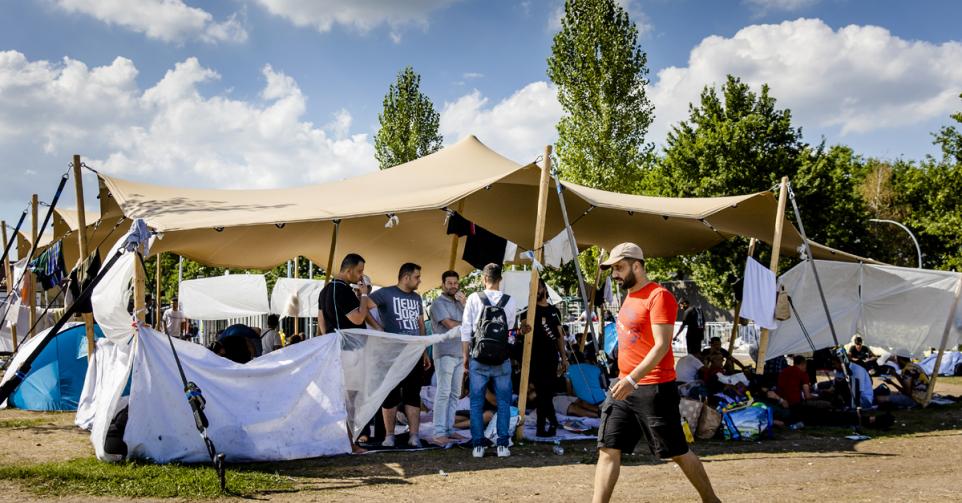Doctors Without Borders (MSF) is currently providing medical and psychological care to asylum seekers outside the gate of the reception centre in Ter Apel in Groningen, the Netherlands.
It is the first time in the organisation’s fifty-year existence that MSF offers assistance in the country, De Morgen writes.
The intervention follows the organisation’s visit to the reception centre, where they were shocked by the living conditions of the refugees outside the gate, according to MSF director for the Netherlands Judith Sargentini.
“Doctors without Borders has been around for fifty years, but it is the first time that we are offering emergency aid in the Netherlands. We are doing this because the Dutch government is so late,” said Sargentini. “The conditions in which the people at Ter Apel find themselves are inhumane.”
‘Inhumane’ living conditions
The MSF team visited the reception centre last Friday, where it found people waiting who had not been able to wash for a week; many have already been diagnosed with skin diseases.
Yesterday, it was announced that a three-month-old baby died in the sports hall of the centre.
Among the hundreds of people sleeping outdoors every night are pregnant women, children and people with chronic illnesses, MSF said. “If this situation continues, it could lead to serious medical emergencies.”
Related News
- Temporary solution proposed for migrant crisis at reception centre
- Fedasil personnel strike in protest of refugee crisis at Brussels reception centre
The decision to provide emergency aid at the reception centre was taken after close consultation with parties including the Red Cross and the Central Agency for the Reception of Asylum Seekers (COA) in the Netherlands.
“We focus on primary care. This includes treating injuries, infections and skin diseases and providing prescriptions for acute and chronic illnesses, as well as providing psychological first aid,” Sargentini explained, adding that MSF works in close contact with the Red Cross.
Short-term solution
MSF will be working at the reception centre with a team of four to six people, five days a week. Sargentini expects that MSF will be present at the site for four to six weeks.
“This is really a short-term solution,” Sargentini emphasizes. “It is important that a long-term solution is considered, such as creating more humane reception locations. And it is important that implementation bodies such as COA are listened to; after all, they raised this crisis years ago.”

